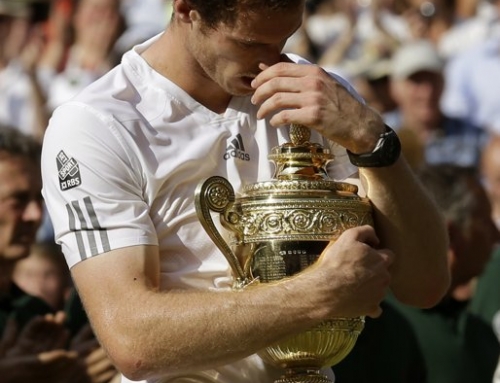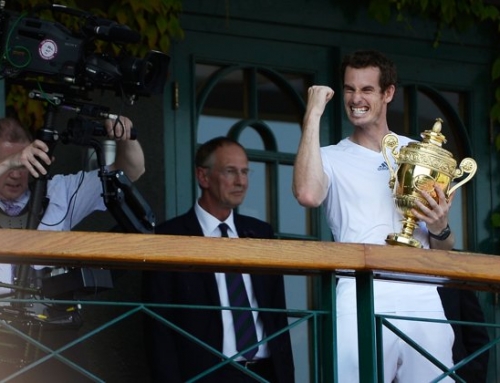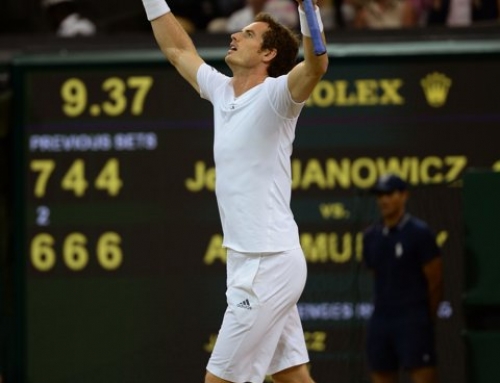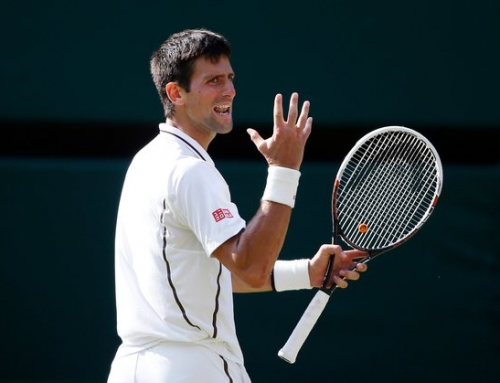Roger Federer was once asked whether he thought that Rafael Nadal pushed him to be the player he is today. Federer gave something of a surprising answer. He said, only a little. He felt he was already putting pressure on himself.
Early in his career, when he won his first Slam, he asked himself whether he was content winning one or two Slams or did he want to push himself to win multiple Slams. Obviously, he picked the second.
Most people first noticed Roger Federer when he beat Pete Sampras in the fourth round of the 2001 Wimbledon in five sets. Anyone who has seen that match knows that Federer won it by serving and volleying. He points out that early in his rivalry with Lleyton Hewitt, he would try to get to net as soon as possible, so unsure of his ability to hang in a groundstroke battle with Hewitt. But as he developed his ground game, he no longer worried about having to come to net, and now only does it as a change of pace.
Think of that. Lendl was not a serve and volleyer, but he convinced himself he needed to be one to win at Wimbledon, and over years of intense focus, made himself into a reasonable volleyer. If you look at his results at Wimbledon, you could argue that he was in the top 5 players on grass in his era behind McEnroe, Becker, and Edberg. Few players have made the singular commitment that Lendl made in his unsuccessful quest to win Wimbledon.
Roger Federer did more than work on his ground game until it was as powerful as it is today. He worked on his fitness, and more important, he worked on his mental game.
Look at Federer’s results in 2002 and 2003. Three times, Roger Federer lost in the first round. He put so much pressure on himself to be successful that he prevented himself from winning the matches he needed to. He knew he was plenty talented, but he lacked mental toughness. There have been plenty of players that haven’t had enough mental toughness to make it to that next step. Indeed, many tennis players have this problem. It takes a special brand of toughness to be like Rafael Nadal.
Some of that comes with simply playing better, being more fit, so you don’t have your body rebel against you late in a fifth set. Vince Lombardi, famous American football coach, once said “fatigue makes cowards of us all”, and those that point to early occasions where Murray “quit” may have been witnessing this level of fatigue and the inability to push through discomfort leading to losses.
Mardy Fish said, in a Wimbledon interview, that he would love to ask Roger Federer, in a private moment, how he did it. How he stayed to mentally focused. Federer has often said that this is one of his strengths and has pointed out his opponents having lapses in concentration. Federer’s likely answer would probably be to smile and not really answer the question. Federer likes to keep his secrets.
Sometimes people say that champions are born, not made, but perhaps with Roger Federer, it was at least partly made. He needed to develop his skills to become a formidable groundstroker, and he needed to avoid injury by good physio work, and most importantly, he needed to be mentally tough, to hang in matches even when things don’t look good, realizing that his opponent is likely to crack sooner than he will.
If he wins a 15th title, it will be in no small part to the amazing work Federer put in to make himself as good as he possibly could be. This is an effort that continues. When he wanted to recover from his spotty play at the beginning of 2009, he worked on two things: his fitness and his serve. He needed to rely more on his serve to win him easier points. He didn’t work on the forehand that was giving him issues. Of course, he also added the drop shot to his repetoire, a shot that he disdained in the past.
As effortless as Federer make his game, he is likely to say that it only came from a lot of hard work, hard work that the public doesn’t get to see.







![[Wimbledon, QF] Murray scraps out 5-set win over Verdasco to reach semifinals](https://www.essentialtennis.com/wp-content/uploads/2013/07/20130703murray-500x383.jpg)